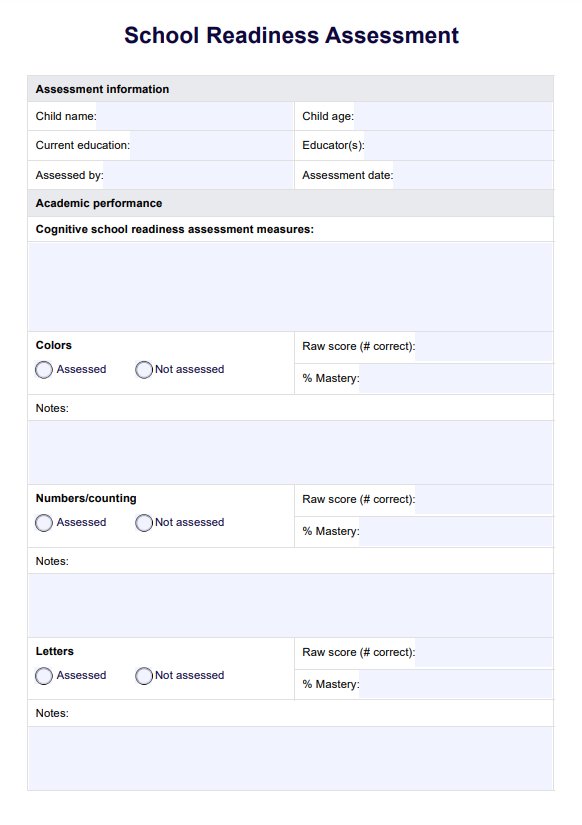School Readiness Assessments are used to determine if a child has the cognitive, emotional, motor and social skills necessary to begin formal education. By identifying developmental needs early, these assessments lay the groundwork for a successful transition to primary education.

School Readiness Assessment
Download our School Readiness Assessment template, a tool for compiling comprehensive evaluations of a child's preparedness to begin primary education, across developmental domains.
School Readiness Assessment Template
Commonly asked questions
School Readiness Assessments are generally conducted the year before a child is expected to start kindergarten, typically around ages 4 to 5. However, the test and exact age can vary depending on the child's development and the educational system requirements they are entering.
Educators and parents should use the report detailing the child's strengths and areas for development to guide personalized learning strategies. These interventions should be tailored to support the child's readiness for school and build foundational skills for lifelong learning.
EHR and practice management software
Get started for free
*No credit card required
Free
$0/usd
Unlimited clients
Telehealth
1GB of storage
Client portal text
Automated billing and online payments











